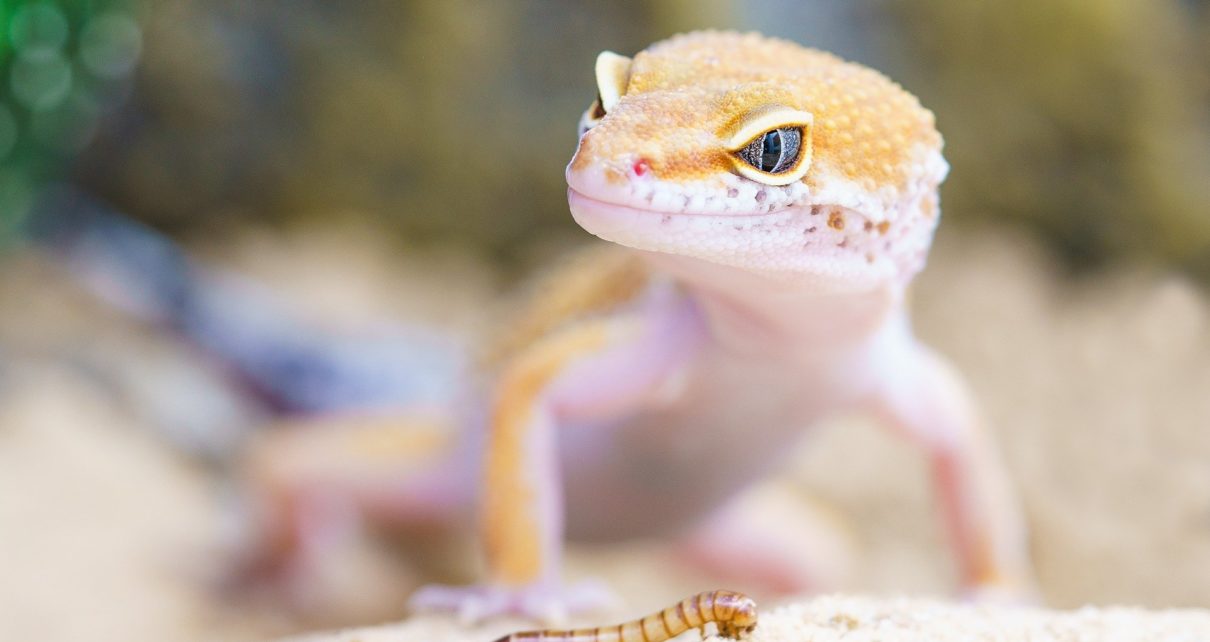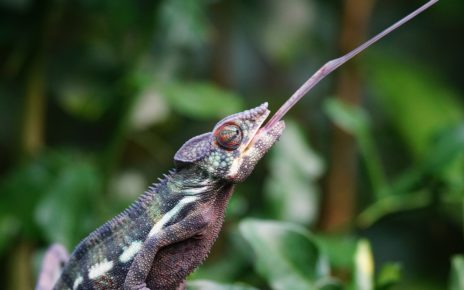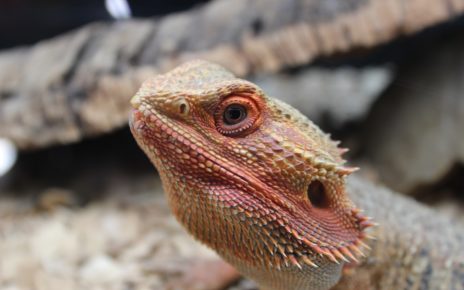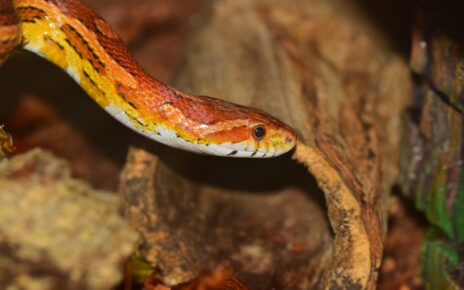Can Leopard Geckos Eat Dried Mealworms? No, it’s not a good idea to feed your leopard gecko dried mealworms. Dead mealworms lack vital nutrients that leopard geckos need in their diet, and most geckos won’t eat an insect unless it’s alive and moving.
Dried mealworms also lack sufficient moisture which makes them hard for a leopard gecko to digest and swallow.
If you’re looking for the best gecko food we recommend that you feed your leopard gecko live insects. If you’re having trouble finding live insects locally you can order them online from the links below.
Best Gecko Food
| Image | Name | Rating | Shop |
|---|---|---|---|
 | Predator Foods Bulk Live Mealworms – 500 Count | ||
 | Elliot’s Butterworms Live Butter Worms for Reptile Food |
Leopard Gecko Food – What do Leopard Geckos Eat?
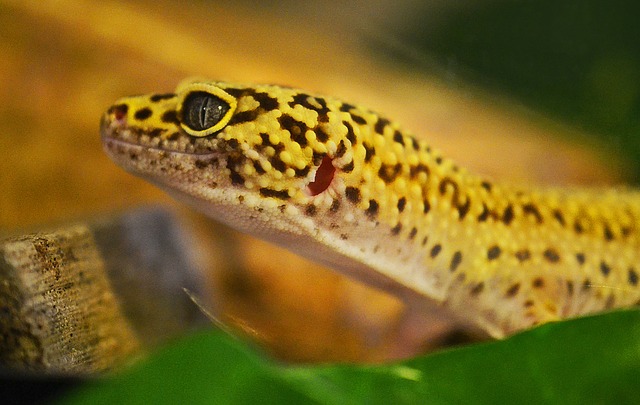
Leopard Geckos like to eat a wide variety of insects but crickets and mealworms should make up the majority of their diet. You can also try feeding your leopard gecko waxworms, tomato hornworms, silkworms, butterworms, sowbugs, beetles, and cockroaches.
Waxworms and Superworms have a high-fat content, so they should only be fed to a leopard gecko as a treat. If you feed your leopard gecko too much fat in their diet it can lead to obesity and other health problems. That’s why it’s a good idea to only feed your leopard gecko high fat insects once a week as a supplement to their regular balanced diet.
Butterworms (Buy Online) are also very high in fat, and most leopard geckos absolutely love them. They do contain high levels of calcium though, which can help prevent metabolic bone disease (MBD) if your leopard gecko isn’t getting enough calcium from crickets and mealworms.
Insects like tomato hormworms and silkworms can also be fed to a leopard gecko, and they tend to have a lower fat content. However, they are a little more costly, and they aren’t as easy to find in local pet stores. If you want to give them a try you can buy them online at these links Tomato Hornworms (Buy Online), Silkworms (Buy Online).
Small beetles and sow bugs (Isopods) are an excellent food for baby geckos since they tend to be very easy for a young gecko to eat.
Read More: What Do Geckos Like to Eat
What Do Leopard Geckos Eat in the Wild
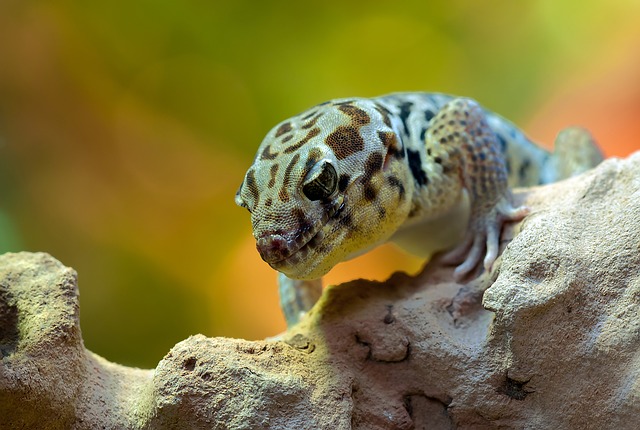
What do leopard geckos eat in the wild? In the wild, most leopard geckos will eat a wide variety of insects like spiders, centipedes, beetles, locusts, and even scorpions.
What do geckos eat besides bugs? They will also eat lizards occasionally if they are small enough for a leopard gecko to subdue and swallow.
Even though leopard geckos eat many different kinds of insects in the wild that doesn’t mean that it’s safe to feed them insects and worms that you find crawling around outside.
Wild-caught insects can carry diseases and parasites which can make your leopard gecko sick, and they can even infest your leopard geckos habitat.
When leopard geckos are kept in captivity they also tend to lose some of their hunting and self-preservation instincts. If you want to keep your gecko safe you shouldn’t feed them any potentially dangerous insects from the wild.
Read More: Best Natural Gecko Terrariums
How Often Do Leopard Geckos Eat
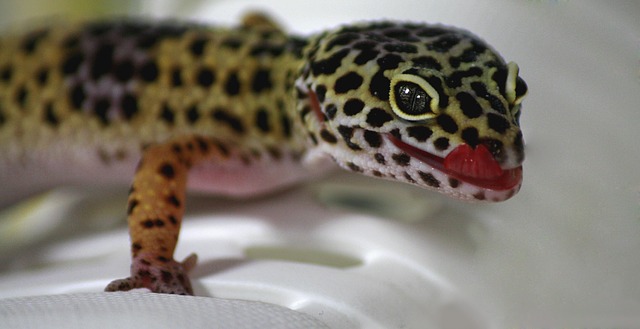
Young Leopard Geckos ( < 1 Year Old): Daily – 7 to 10 Small Insects Each Day
Mature Geckos ( > 1-Year-Old) : 3 to 4 Times a Week – Larger insects – 5-8 Insects or as many as they can eat in one sitting
Every gecko is different and their appetites can wax and wane, and each gecko can have their unique food preferences so there is no one “right” gecko feeding strategy.
If your gecko is eating every insect you give them you can try feeding them more the next time they eat to see if they are still hungry.
Alternatively, if your gecko is always leaving a few insects behind, try to cut back the number of insects you feed them until they eat their entire meal without letting any go to waste.
As geckos age, they can become more sedentary, and they won’t need to eat as much as they did when they were babies. In that situation, it’s a good idea to only feed them every other day to avoid giving them more than they can eat and to ensure they remain interested in eating.
What Do Baby Geckos Eat
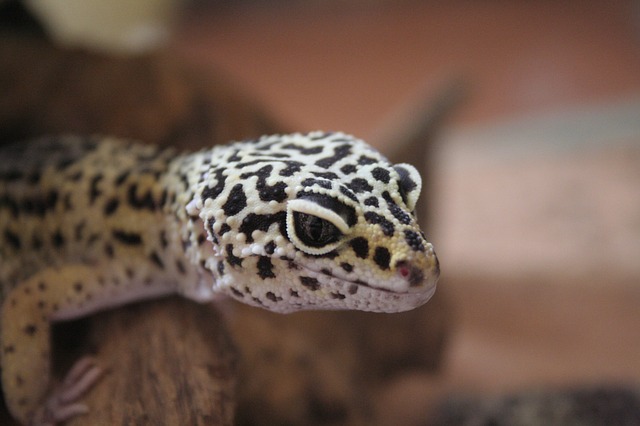
It’s best to give a baby leopard gecko 7 to 10 small insects like mealworms, dubia roach nymphs, or small beetles during each feeding, and if they are unable to eat that much, you can reduce that amount until they eat all the feeder insects without leaving any behind.
Baby leopard geckos will need to eat more often than adults to fuel their rapidly growing body. In their first year of life, leopard geckos will need to eat once or twice a day, but as they get older their appetite will subside as they reach full maturity.
You should try feeding your baby leopard gecko at least once a day, and try to give them multiple small insects during each feeding. They will usually stop eating when they have had enough, and any leftover insects should be removed from their habitat for your baby geckos safety.
Leopard Gecko Feeder Insects
Mealworms
Mealworms (Buy Online) are a perfect leopard gecko food. Mealworms are the second most popular feeder insect next to crickets, and they can serve as a staple in any leopard geckos diet. They also contain more nutrients than crickets, and they are an excellent source of calories if you need to fatten up your leopard gecko’s tail.
Mealworms have a very good nutrient profile since they contain a good mix of protein and essential fatty acids. Live mealworms have a protein content of 19%, and they have a 17% fat content.
Mealworms also have a nearly 1 to 1 ratio of protein to fat. That makes them a great food for young geckos that need lots of food to fuel their developing bodies. Just be sure you don’t overfeed your gecko by giving them too many mealworms since this can lead to excessive weight gain and other health problems.
Waxworms
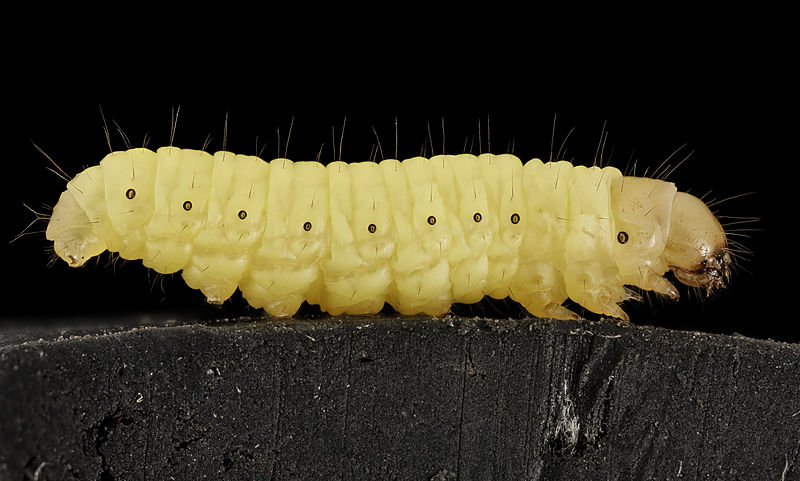
Live Waxworms (Buy Online) make an excellent treat to help mix up your leopard gecko’s diet. Waxworms are very high in fat, so they shouldn’t serve as a staple in a geckos diet. However, most geckos love them, so you can feed them waxworms sparingly so your gecko doesn’t get bored eating crickets and mealworms every day.
Waxworms are also another great food to feed to an underweight gecko since they have a very high-fat content. Their high-fat content makes it easy to get more calories into your gecko even if they are skipping meals and being picky about eating their normal diet.
Waxworms can be hard to find locally, but they are available for purchase online with quick free delivery on Amazon.com.
Crickets
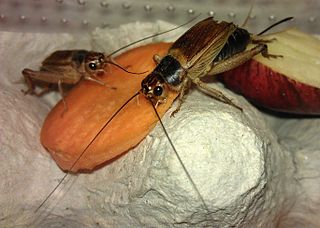
Crickets (Buy Online) should serve as the primary staple food in a leopard geckos diet. They are also very nutritionally similar to the types of insects that leopard geckos eat in the wild, and they are more likely to stimulate your gecko’s natural prey drive.
Crickets are also a very good source of nutrition for a leopard gecko, and it’s very easy to fortify them with vitamins and minerals. You can “gut load” them with supplements like Repashy SuperLoad (Buy Online), or any other cricket food that’s made to boost their nutritional value.
Crickets have a very good balance of nutrients since they contain 20% protein and 6.8% fat. That makes them one of the few high protein low-fat insects that will ensure your leopard gecko is always eating a well-balanced diet.
Butterworms
Butterworms (Buy Online) are a nice juicy treat to give to a leopard gecko. These worms are actually the caterpillars of the Chilean Trevo Moth. They have a 6.2% protein content, and fat content of 5.2 %. They also contain 43 mg/100g of calcium, which makes them an excellent natural calcium supplement.
Silkworms
Live Silkworms (Buy Online) are a good low-calorie food to add to a leopard geckos diet. They are very simple to care for, and they can even live for more than a week without eating. They also have a high calcium content, and silkworms are a good source of B-Vitamins. Best of all Silkworms contain 9.3% protein and only 1.1% fat, so they won’t cause obesity problems even if your gecko tends to be a bit of a glutton.
Tomato Hornworms
Tomato Hornworms (Buy Online) are a feeder insect that is perfect for mature geckos with a large appetite. These large “worms” are commonly found in gardens feeding on plants like tomatoes, potatoes, and even tobacco. They are the caterpillar stage of the five-spotted hawkmoth, and they are endemic to North America and Australia.
Tomato Hornworms are a very good source of calcium and they have a good protein to fat ratio. They have a calcium content of 46.4mg/100g, and they contain 9% protein and 3% fat. They are also very easy to raise, and you can order Tomato Hornworm grow kits online from Amazon.com with free shipping.
Dubia Roaches
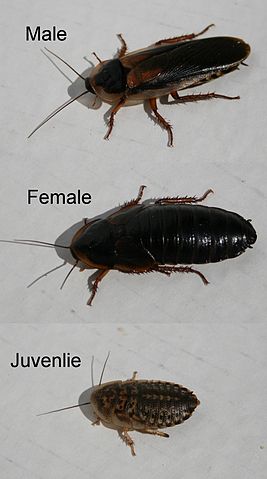
Live Dubia Roaches (Buy Online) are very easy to raise, and they make an excellent substitute for crickets in a leopard geckos diet. Dubia roaches don’t make any noise unlike crickets, and it’s simple to breed them even if space is limited.
Young dubia roaches also make an excellent food for baby geckos since they are very small and easy to swallow. It can be hard to find Dubia Roaches in pet stores, but they are readily available online on Amazon.com if you want to have them delivered.
Beetles
Beetles (Buy Online) are a good food for small baby leopard geckos. There are many different types of beetles available, but the Tenebrio Obscurus Black Cleaner Beetles are one of the best options. These small beetles measure ½ to ¾ of an inch and they are very easy to raise in captivity.
Tenebrio Obscurus Black Cleaner Beetles also help keep other feeder insect enclosures clean by eating any waste and detritus. This helps prevent mold problems, and it can limit the amount of maintenance work you need to do on your feeder insect habitat.
Sow Bugs – Isopods
Sow Bugs – Isopods (Buy Online) are another easy to raise insect that you can easily feed to your leopard gecko. These small bugs are fast reproducers, and they are very easy to feed since they live off decaying organic matter.
They are also a good insect to add to a geckos habitat since they can be used to keep the enclosure clean and they can make the substrate “bio-active”. They also won’t attack your gecko unlike crickets, so it’s safe to leave them in your gecko’s terrarium. Just be sure to keep the humidity levels high since Isopods come from very moist environments

